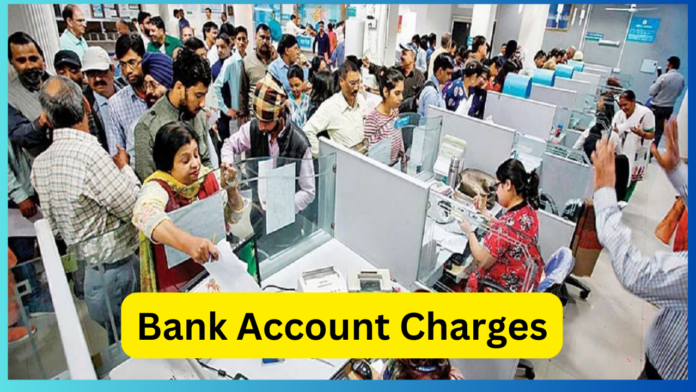What charges do banks charge: Many times you must have seen that sometimes banks deduct Rs 18 and sometimes Rs 30 from your account. You may not know, but these do not happen without any reason and you can also avoid them. Let us know about it in detail.
In today’s time, almost everyone has a bank account. Earlier, the penetration of banking in India was less, that is, there were a large number of people who did not have an account in any bank, but the Pradhan Mantri Jan-Dhan Yojana changed its entire picture. Now this figure has increased rapidly.
If you are reading this article, then the chances of you not having a bank account are almost negligible, and since you have a bank account, you must have noticed many times that money is being withdrawn from your account in the name of different services. Let’s take a bite.
Now so many people have accounts
Today we will talk about what charges banks levy on us and from you and we will also know if there is any way to avoid them… but before moving forward, let us know some basic things. In 2011, only 44 percent of people above 15 years of age in India had bank accounts.
There was a tremendous change in this figure due to Pradhan Mantri Jan-Dhan Yojana. In the year 2021, the share of the population having a bank account in the age group above 15 years increased to about 78 percent.
Charges according to account type
There are basically two types of accounts opened in banks – savings account and current account. Common people open only savings account i.e. savings bank account. Current account is a better option for people who make large transactions. It is natural that most of the business people have a current account.
Now if we look at the case of savings account, here too there are mainly two types – one is zero balance saving account i.e. such a savings account in which there is no minimum limit for keeping any amount, second is minimum balance saving account i.e. such savings account in which You cannot keep less than a certain amount of money.
Let us know the main charges of banks
No matter which category your account falls in, you have to pay charges. Yes, the number of charges and their amount may vary depending on the category. Let us know about some of the main charges charged on bank accounts and also how they can be avoided…
Maintenance/Service Fee:
All banks collect this charge for maintaining your account. This applies to all types of accounts. Its rates may vary according to banks.
How to avoid: Many banks waive it if transactions exceed a limit. You can know this by reading the terms and conditions of your bank.
Debit Card Fee:
Banks usually give a debit card along with the account as soon as it is opened. It is not free. For this, all banks charge on annual basis.
How to avoid: If you do not need a debit card, do not get it from the bank. If you have more than one account, take a card for only one account.
Other ATM Charges:
If you use another bank’s ATM, you will have to pay a charge for it. Now you can withdraw money from your bank’s ATM for free only 4 times in a month.
How to avoid: Try to withdraw as much money as possible for the monthly expenses in one or two times. Avoid using ATMs of other banks.
Insufficient funds:
In accounts where minimum balance is required, banks levy a charge if the money is less than the limit.
How to avoid: Maintain the minimum limit of your account.
Overdraft Fee:
This is not applicable for everyone. Not all banks provide this facility. Under this, you can withdraw money up to a limit even if there is no balance.
How to avoid: Try never to need it. For this, you should develop the habit of regular savings and keep a fund ready.
Transfer Fee:
You can send money to any other account through means like UPI, IMPS, RTGS, NEFT. Not all of these are free. Many banks charge money on IMPS transfer.
How to avoid: Use UPI, RTGS, NEFT etc. for payment.
Account closing charge:
If you close your bank account, the bank may charge you for it. So never open an account blindly.
How to avoid: Banks do not charge for closing the account after some time of opening, so check this condition before closing the account.
Dormancy Fee:
If you do not do any transaction from your account for a long time, the bank puts it dormant. Generally its limit is one year.
How to avoid: Do not leave the account without transactions for a long time. You can deposit some money in such an account and withdraw it. This will keep the account active.


